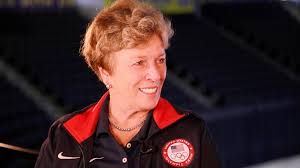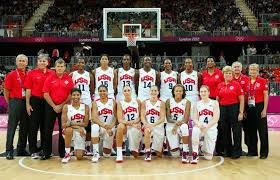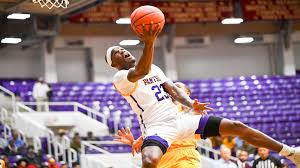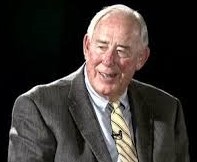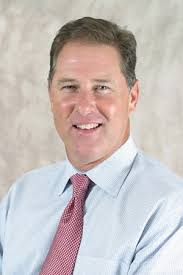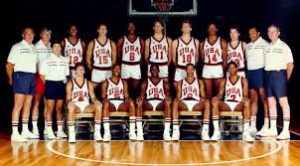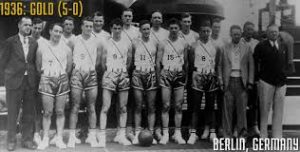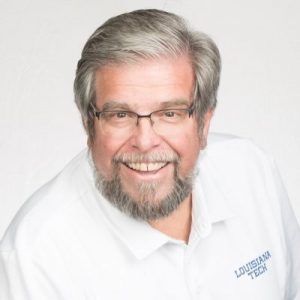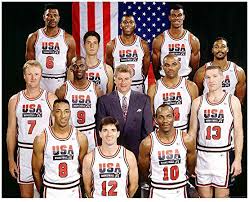On May 1st the NBA’s Board of Governors voted to postpone the Draft Lottery and Draft Combine in Chicago due to an abundance of caution regarding the coronavirus pandemic. In addition to all of the seniors who have wrapped up their college careers, the early-entry deadline for underclassmen was August 3rd and the NBA deadline is approaching on August 17th. The lottery has been postponed until August 20th and the draft itself is scheduled to take place virtually on October 16th. We will spend the upcoming months interviewing as many members of the 2020 draft class as possible. HoopsHD’s Jon Teitel continues our coverage by chatting with Dylan Smith about working out with NBA players and what it would mean to him to get drafted.
In 2016 you led UNC Asheville in scoring with 13.5 PPG and were named to the Big South All-Freshmen Team: how were you able to come in and contribute right from the start? I just believed in myself and Coach Nick McDevitt and the rest of the staff gave me confidence as well. They trusted me with the ball in my hands, especially in clutch situations.
In the 2016 NCAA tourney you scored a team-high 14 PTS in a loss to Villanova: where does that NCAA title-winning Wildcat team rank among the best that you have ever seen? Actually, if you re-watch that game you will see that I had 18 PTS: the announcers often got me and my teammate Dwayne Sutton confused. I thought they were pretty good but I feel like the best team top-to-bottom that I have seen was the 2017-18 Arizona Wildcats. Although we underachieved, I believe that down the road we will have at least 10 pros/5 NBA players.
Why did you decide to transfer after that season, and what made you choose Arizona? I just felt like I should have been recruited at a high level during high school, but due to the fact that I got into AAU ball late it slowed my recruiting process.
Last season you led the Wildcats with 57 3PM: what is the secret to making shots from behind the arc? I always try to get as much arc when I shoot as possible. That way even when I shoot the ball a little flat I still have enough to get it over the rim.
On Senior Night you scored 19 PTS in a 6-PT loss to Washington: how were you able to keep playing after suffering a broken nose in the 1st half, and how is your nose doing at the moment? Honestly that is just how I am built. I knew from the second that Isaiah Stewart hit me that my nose was broken: I was more pissed than anything. Once our trainer told me that I could play I just told them to get me some ice whenever I subbed out. I wish we could have won that game: the whole memory is bittersweet.
In the rematch 4 days later in the Pac-12 tourney you scored 14 PTS in a 7-PT win over the Huskies but had your postseason cut short after your quarterfinal game against USC was canceled due to the coronavirus: what was your reaction when you 1st heard the news, and do you think that it was the right decision? I have to add that I had 8 assists in that game as well! When I heard the news about COVID-19 and the cancellation of the season I was just shocked. I knew from that point that I had to get prepared to be a pro because I had played my last college game. I think it was the correct decision…but I wish that we could have finished the season in an NBA-type bubble or something like that.
You have a couple of former teammates in the NBA including Deandre Ayton/Allonzo Trier: have you talked to them about what it takes to make it to the next level? Yes: I talk to both of them often and we hang out all the time. I am in Phoenix while training and I work out with Zo every day. I have not necessarily talked to them about what it takes but I am around them and see the work they put in so I am putting in that same kind of work.
You also have 3 teammates who are projected to get drafted this year in Josh Green/Nico Mannion/Zeke Nnaji: which of them do you think will turn out to be the best pro basketball player, and what is Coach Sean Miller going to do next season after losing all of you guys? They are all good players but I think that Nico could be the best pro. His skill set for his age is pretty advanced and he has a high IQ. If he plays in a system that fits him well then he will be a long-time pro. I think highly of Zeke/Josh as well and believe that they all will have long careers.
What is it like to be an African-American man/basketball player in 2020? I have been an African-American man playing basketball all my life so it is pretty normal.
What would it mean to you to get drafted, and what is the plan if you do not get drafted? If I get drafted then it would be a dream come true, although I know that is unlikely. I am okay with going the undrafted route because I feel that I am good enough to play in the NBA. I believe in myself and know that all it takes is for the right team to believe in me.


